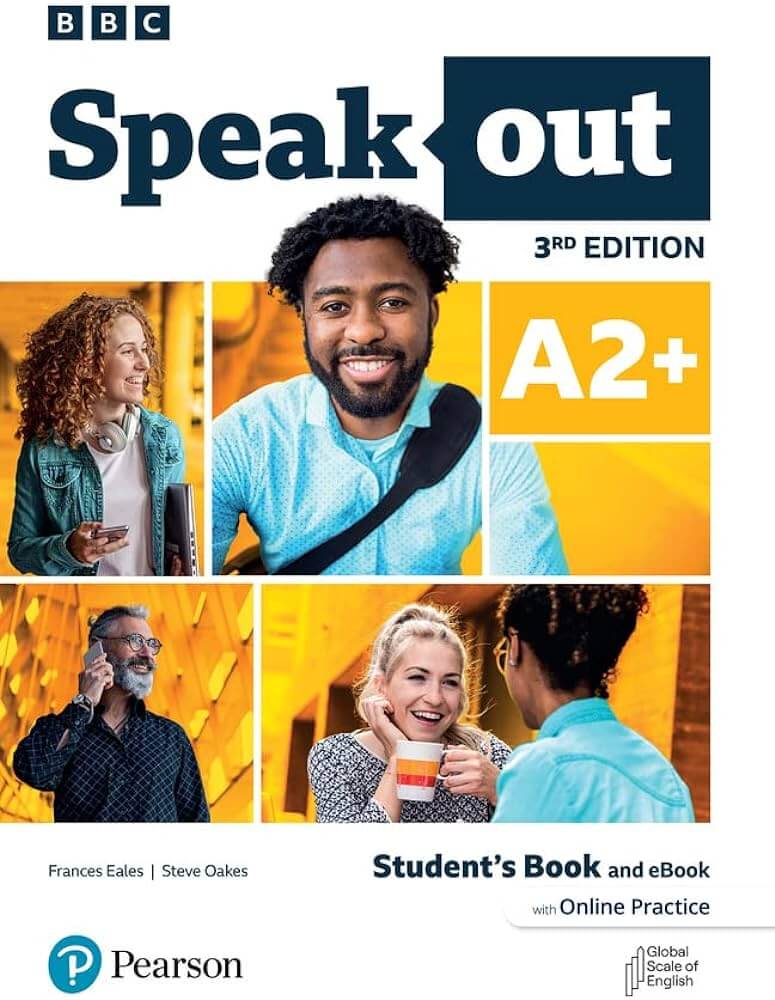Where should an adult start learning English?
Oleksandra Kulish
Book expert
Philologists, teachers, and students have been discussing the role of age in learning a foreign language for many years. According to many of them, childhood is the best time to eventually master the art of speaking English at a native level.
Scientists argue that although children intuitively learn the phonetic and grammatical features of the language better, English for adults means faster understanding of complex semantic structures.

Does it make a difference at what age to start learning English?
The traditional belief that it is easier to learn a language up to a certain age is based on research on the neuroplasticity of the child's brain. However, there is also evidence that the more developed cognitive skills of adults make learning easier. Beginners, even as adults, can learn English in a step-by-step and effective manner.
A 2016 study published by the University of Michigan on foreign language learning
In 2016, the University of Michigan conducted an interesting study on foreign language learning. Researchers Saito and Akiyama found that it is easier to start for adults who have already studied another foreign language. In addition, an intentional focus on form allows you to learn more effectively.
To focus on form, you need to pay more attention to organic English. For example, read literature in a foreign language. To start from a simpler level, adapted books in English are ideal.
Motivation and psychological aspects of language learning in adulthood: how to learn English on your own
Learning a language as an adult is not only about acquiring new knowledge, but also about working on yourself. To stay on track, it is important to have the right mindset. Decide why you need the language: travel, work, immigration? Break your goal down into steps: take tests every month, keep a diary, watch films in the original language. The main thing is to make the process lively and interesting.
It is normal to be afraid of making mistakes. But mistakes are part of learning. It is better to speak with mistakes than to remain silent. Practise with a teacher, record yourself, repeat phrases aloud. Your confidence will grow. Results do not appear instantly. But 15–20 minutes every day is already progress. Be consistent, don't be too critical of yourself, and keep track of even small successes. And don't overload yourself. Change the format of your learning, take breaks, and share your results with others. And most importantly, don't compare your progress with others. Everyone has their own pace.
How does previous experience of learning another language affect the learning efficiency of adult beginners?
Beginners who already speak other languages learn English much faster than beginners who learn a new foreign language. This is due to several factors:
- Developed cognitive skills.
- Expanded basic vocabulary.
- Availability of a learning strategy.
In addition to these advantages, multilingual people know more grammatical structures and do not have significant problems with the language barrier.
Where to start learning English for adults

Let's talk about where to start learning English as an adult. The main thing for every beginner is to choose the right methodology and use a step-by-step approach:
- Determine your level. You need to start by taking an online test in order to choose the right textbooks and learning materials.
- Determine whether you need English for work, travel, or emigration.
- Choose high-quality self-study books and textbooks.
- Make a study plan.
- Start practising.
The right start is key to your success. In addition, there are many textbooks that describe how to learn English from scratch as an adult — they will help you.
Setting goals in language learning (SMART goals)
For foreign language learning to be effective, it is important to set clear and realistic goals. The SMART method can help with this. It stands for:
- S – Specific.
The goal should be clear, not vague. Example: ‘Learn 100 new words on the topic of “Travel” in a month’ instead of ‘Improve my vocabulary.’
- M – Measurable.
The result should be something that can be evaluated. Example: ‘Watch 10 TED videos with notes’ instead of ‘Watch more videos in English.’
- A – Achievable.
The goal should match your abilities — both in terms of time and skills. Example: ‘Spend 20 minutes on English every day’ instead of ‘Move to London in six months and speak without an accent.’
- R – Relevant.
The goal should match your personal interests and needs. Example: ‘Prepare for a job interview in English’ if your goal is to find a job.
- T – Time-bound.
Each goal has a clear deadline. Example: ‘Pass level A2 in 3 months.’
Example of a SMART goal:
‘Complete an online course for level B1 in 6 weeks, learn 300 words on the topics of “work” and “communication”, watch 2 English-language videos per week and record 3 conversation sessions with a tutor.’
SMART goals provide guidance, maintain motivation, and help track real progress. This means that the path to knowledge becomes consistent and effective.
Tips for effective learning and understanding the logic of language
Follow these tips to learn the language quickly:
- Learn words in context - make sentences, watch videos.
- Make English a part of your life - watch TV shows with subtitles, take notes at home, and change the language of your phone's interface.
- Practice your pronunciation by reading aloud when you're at home, singing songs, and repeating after your favorite bloggers.
- Fight word forgetting — to avoid forgetting words, repeat them at intervals, use them in context, and associate them with images.
- Improve your listening comprehension — to improve your listening comprehension, listen to English every day, adapted to your level, with repetition and subtitles.
- Overcome the learning plateau — changing your approach to learning, taking on new challenges, and moving on to more difficult material will help you overcome the plateau.
And most importantly, spend at least half an hour a day on active learning.
5 apps to learn English fast with just your smartphone
Download one of the following apps and spend 10-15 minutes a day on it to make your English learning experience more varied:
- Duolingo. The lessons in the app are built in a game format, so the process of learning new things will be much easier.
- Memrise. An app that will help you memorize many words and enrich your vocabulary.
- Anki. The flash card system in your phone allows you to learn words by active memorization.
- HelloTalk. A social network where you can communicate with native speakers and teach others.
- LingQ. A platform that helps with listening and reading comprehension through interesting articles and podcasts.
Even as an adult, you can start learning English through diligence, regularity, and a combination of learning methods, even while studying at home.
Learning English as a child and as an adult
Here is a table comparing language learning in childhood and adulthood:
|
Criterion |
Learning in childhood |
Learning in adulthood |
|
Phonetics |
Children easily acquire correct pronunciation and intonation naturally. |
Adults often have an accent and find it more difficult to change their articulation. |
|
Grammar |
Learned intuitively through context and practice. |
Learned consciously through rules and an analytical approach. |
|
Vocabulary acquisition |
Quick memorisation through games, repetition, and daily interaction. |
Requires repetition, practice, associations, and context. |
|
Perception of meaning |
Formed naturally in connection with the environment. |
Based on logic, translation, and knowledge of the native language. |
|
Speed of acquisition |
Higher due to the flexibility of the brain and constant practice. |
Slower, but also effective with consistency and motivation. |

The best books for comprehensive English language learning for adults on Dinternal Education
The main source of systematized information is always a quality book. Dinternal Education offers self-study books and textbooks from leading publishers for any level of language proficiency. Start your journey to English fluency by choosing quality learning materials that will help you with a comprehensive study of all aspects of the language.
FAQ
Should adults start learning with grammar?
Of course, it all depends on your personal language learning style, but in most cases, it's not a good idea. It is better for adults to start with practicing the living language: basic phrases, the most common constructions, listening, and speaking. Grammar should be a support, not a starting point — it is better to study it in parallel and in small doses, immediately applying it in practice.
How many words can an adult realistically learn in a month?
On average, 80-150 words, if you repeat them regularly and see them in real situations. With the right system (context, associations, spaced repetition), you can learn more, but the main thing is not quantity, but active use.
What is the most effective method for overcoming the fear of speaking?
The most effective way is to talk regularly in a safe environment where you are not judged or criticized. Gradually “getting used” to speaking works better than any technique. Small successes and support reduce anxiety and build confidence in speaking.
Why is it so important to learn words only in context?
Words without context are quickly forgotten and rarely become part of your active vocabulary. In context, you understand not only the meaning but also the emotional connotations of words, and you remember typical phrases and situations in which they are used, which greatly improves the quality of vocabulary learning.
Other news

72
0

Oleksandra Kulish
Book expert
20 February 2026

99
0

Oleksandra Kulish
Book expert
19 February 2026

400
0

Oleksandra Kulish
Book expert
30 January 2026








